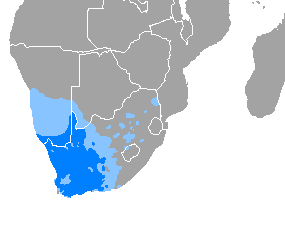
Afrikaans is a West Germanic language, spoken in South Africa, Namibia and Botswana, Zambia and Zimbabwe. It evolved from the Dutch vernacular of South Holland spoken by the predominantly Dutch settlers and enslaved population of the Dutch Cape Colony, where it gradually began to develop distinguishing characteristics in the 17th and 18th centuries.
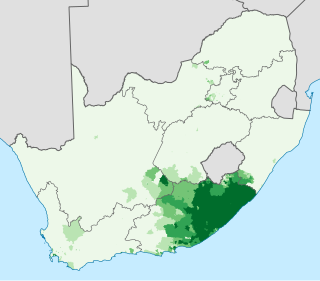
Xhosa, formerly spelled Xosa and also known by its local name isiXhosa, is a Nguni language, indigenous to Southern Africa and one of the official languages of South Africa and Zimbabwe. Xhosa is spoken as a first language by approximately 8 million people and as a second language in South Africa, particularly in Eastern Cape, Western Cape, Northern Cape and Gauteng, and also in parts of Zimbabwe and Lesotho. It has perhaps the heaviest functional load of click consonants in a Bantu language, with one count finding that 10% of basic vocabulary items contained a click.

An official language is a language having certain rights to be used in defined situations. These rights can be created in written form or by historic usage.
Wikisource is an online wiki-based digital library of free-content textual sources operated by the Wikimedia Foundation. Wikisource is the name of the project as a whole; it is also the name for each instance of that project, one for each language. The project's aim is to host all forms of free text, in many languages, and translations. Originally conceived as an archive to store useful or important historical texts, it has expanded to become a general-content library. The project officially began on November 24, 2003, under the name Project Sourceberg, a play on Project Gutenberg. The name Wikisource was adopted later that year and it received its own domain name.

The Manding languages are a dialect continuum within the Niger-Congo family spoken in West Africa. Varieties of Manding are generally considered to be mutually intelligible – dependent on exposure or familiarity with dialects between speakers – and spoken by 9.1 million people in the countries Burkina Faso, Senegal, Guinea-Bissau, Guinea, Sierra Leone, Mali, Liberia, Ivory Coast and The Gambia. Their best-known members are Mandinka or Mandingo, the principal language of The Gambia; Bambara, the most widely spoken language in Mali; Maninka or Malinké, a major language of Guinea and Mali; and Jula, a trade language of Ivory Coast and western Burkina Faso. Manding is part of the larger Mandé family of languages.
.za is the Internet country code top-level domain (ccTLD) for South Africa. The .za namespace is managed and regulated by the .za Domain Name Authority (ZADNA). Most domains are registered under the second-level domain .co.za.
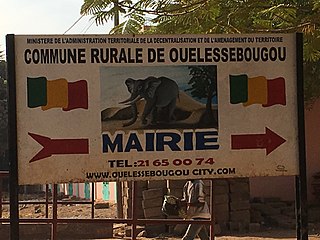
Mali is a multilingual country of about 21.9 million people. The languages spoken there reflect ancient settlement patterns, migrations, and its long history. Ethnologue counts more than 80 languages. Of these, Bambara, Bobo, Bozo, Dogon, Fula, Arabic, Kassonke, Maninke, Minyanka, Senufo, Songhay languages, Soninke and Tamasheq are official languages.
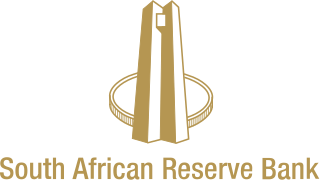
The South African Reserve Bank (SARB) is the central bank of South Africa. It was established in 1921 after Parliament passed an act, the "Currency and Bank Act of 10 August 1920", as a direct result of the abnormal monetary and financial conditions which World War I had brought. The SARB was only the fourth central bank established outside the United Kingdom and Europe, the others being the Federal Reserve, Bank of Japan and Bank of Java. The earliest suggestions for the establishment of the Central Bank in South Africa date back to 1879. A select committee, of ten members of Parliament, was established on 31 March 1920 to examine the benefits to the national interest of the establishing of the central bank.

South African Sign Language is the primary sign language used by deaf people in South Africa. The South African government added a National Language Unit for South African Sign Language in 2001. SASL is not the only manual language used in South Africa, but it is the language that is being promoted as the language to be used by the Deaf in South Africa, although Deaf peoples in South Africa historically do not form a single group.
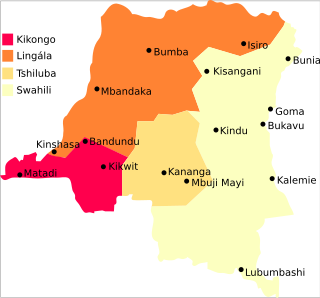
The Democratic Republic of the Congo is a multilingual country where an estimated total of 242 languages are spoken. Ethnologue lists 215 living languages. The official language, since the colonial period, is French, one of the languages of Belgium. Four other languages, all of them Bantu based, have the status of national language: Kikongo-Kituba, Lingala, Swahili and Tshiluba.
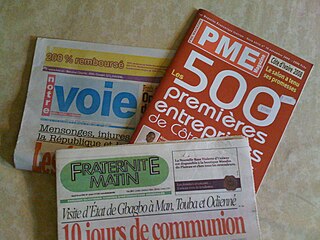
Ivory Coast is a multilingual country with an estimated 69 languages currently spoken. The official language is French. This language is taught in schools and serves as a lingua franca in the country, along with Dioula.

Senegal is a multilingual country: Ethnologue lists 36 languages, Wolof being the most widely spoken language.

The following outline is provided as an overview of and topical guide to Zimbabwe:
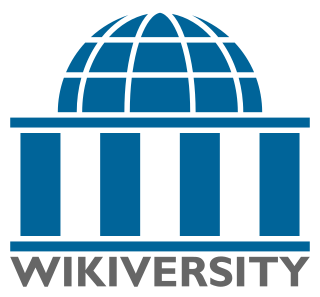
Wikiversity is a Wikimedia Foundation project that supports learning communities, their learning materials, and resulting activities. It differs from Wikipedia in that it offers tutorials and other materials for the fostering of learning, rather than an encyclopedia. It is available in many languages.
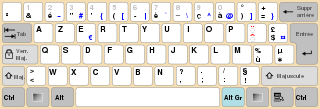
The Republic of Guinea is a multilingual country, with over 40 languages spoken. The official language is French.

Togo is a multilingual country, which according to one count has 44 languages spoken. The official language is French. In 1975, the government designated two indigenous languages - Ewé and Kabiyé - as national languages, meaning that they are promoted in formal education and the media. The two national languages tend to be used regionally with Ewé used in the south from Lomé to Blitta, and Kabiyé from Blitta to Dapaong in the north.
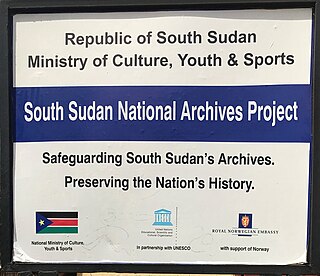
South Sudan is a multilingual country, with over 60 indigenous languages spoken. The official language of the country is English which was introduced in the region during the colonial era.

Ethnic groups in South Africa have a variety of origins. The racial categories introduced by the colonial apartheid regime remain ingrained in South African society with the governing party of South Africa, the African National Congress (ANC) continuing to classify the population as belonging to one of the four colonial-era constructed racial groups: Whites, Indians, Coloureds and Blacks.

SADiLaR, is a Department of Science and Innovation-sponsored initiative to create and manage digital resources and software supporting research and development in digital language resources in South Africa.

















